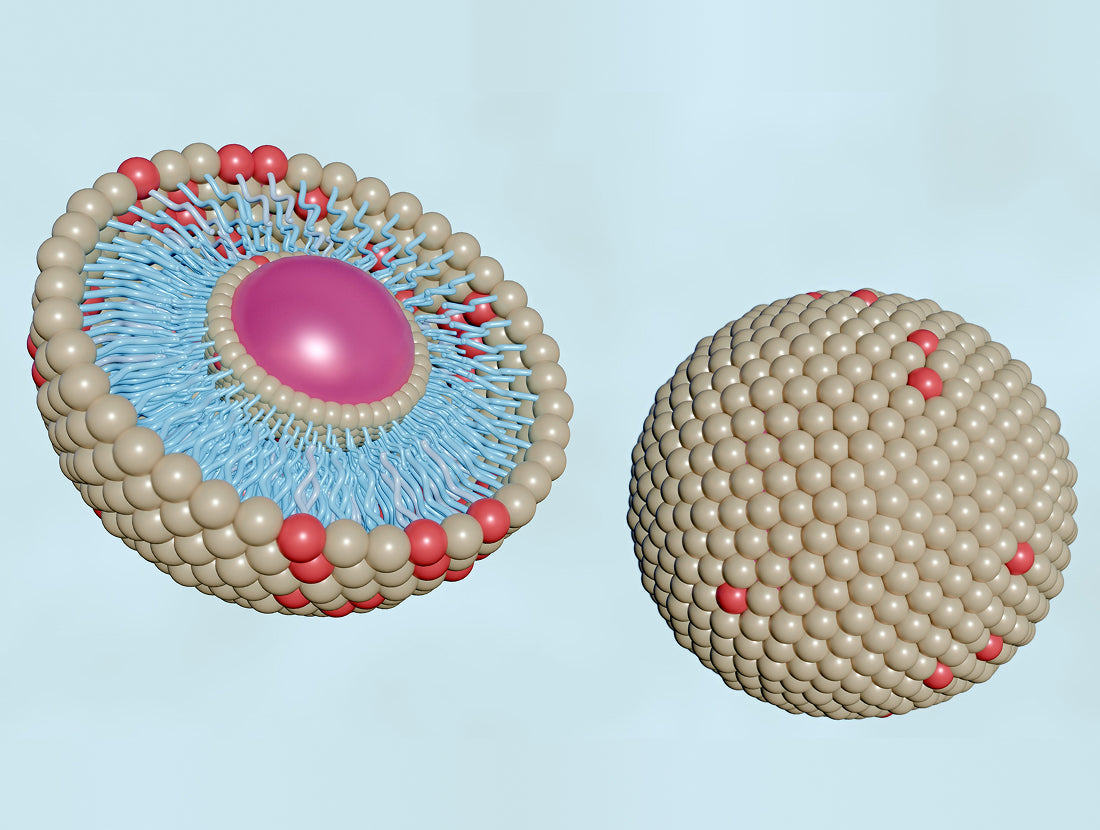**Updated July 2025
Which Vitamin C serum is right for me?
Ask any physician or skincare expert what your skincare routine should include, and you will hear many different opinions. All or most of which will include some sort of Vitamin C product. Why is that? The benefits of a well formulated Vitamin C product are immense. These range from correcting your skin by firming, lightening, and brightening to preventing future damage by neutralizing free radicals.
Vitamin C comes in many different forms. There are extensive (and complicated) debates over which form of topical Vitamin C can best penetrate the skin and therefore reap the best benefits. The top forms used in medical grade products are L-Ascorbic Acid and Tetrahexyldecyl Ascorbate Which is better? Well that depends on who you ask. Every company will say their Vitamin C ingredient is superior. As for the scientific evidence, the jury is still out. Here is a concise version of the debate between them:
L- Ascorbic Acid is Vitamin C in its purest form. All other forms are derivatives and must convert to L-Ascorbic Acid after entering your skin. But L- Ascorbic Acid has some problems. Mainly it is incredibly hard to stabilize and is only able to penetrate your skin at a pH lower than 3.5. Since your skin’s natural pH is 5.5, the low pH of stable L-Ascorbic Acid can cause some irritation. All products containing L- Ascorbic Acid are not equal, and you need to be wary when choosing an L-AA product.
Tetrahexyldecyl Ascorbate (THDA) is a oil-soluble derivative of Vitamin C. With a neutral pH of 7, this product is less irritating and much more stable than L- Ascorbic Acid. Although the fat solubility of this ingredient can make it easier to penetrate the skin, the debate lies in how much is actually converted to L- Ascorbic Acid once it enters the dermis. Lastly, THDA is a much more expensive ingredient than L-Ascobic Acid, therefore products containing Tetrahexyldecyl Ascorbate are typically pricey as well.
So which form should you choose? Choose a reputable medical grade Vitamin C product that is right for your skin type. Both of these ingredients have benefits, and you want to choose one best suited for your specific skin type. Medical grade products are backed by clinical trials or data proving their efficacy. Considering Vitamin C products can be pricey and useless if unstable, you only want to use one that has been scientifically backed and proven to be effective.
There are also now other forms on the market that offer improved stability when encapsulated, like Sodium Ascorbate, and Ascorbyl Palmitate, which offer similar results to products with L-Ascorbic Acid and THDA.
Our top product recommendations with all 4 types of Vitamin C are below:
Best Vitamin C Products
1. Revision Skincare C+ Correcting Complex (THDA)
Our best-selling Vitamin C product, this THDA based vitamin C serum is known for its ability to correct visible damage like dark spots and fine lines & wrinkles.
It is also a clinically proven way to fight and even prevent free radical damage and reduce redness, and includes Vitamin E to promote healing.
This formula, is very potent, so although it's designed to be used by all skin types, those with sensitive should do a patch test first.
2. Obagi Professional C Serum 15% (L-Ascorbic Acid)
A simple water based formula which contains only 6 ingredients. A fan favorite which is perfect for oily skin.
It's also at a lower price point than most other C serums, and includes a bonus of Vitamin C, Ascorbyl Glucoside.
Note that it contains Alcohol and Fragrance which can be irritating to some.
Also available in a 10% and 20% concentration.
3. Alastin Skincare C-Radical Defense Antioxidant Serum (Sodium Ascorbate)
A relatively new offering from Alastin Skincare, C-Radical Defense Antioxidant Serum combines a stable, encapsulated form of Vitamin C with 14 antioxidants to maximize its free radical fighting power.
Helps minimize the appearance of fine lines & wrinkles, and can brighten & even skin tone.
Ideal for most skin types, but those with sensitive skin should try a patch test before full application.
4. Truth Treatments Transdermal C Serum (THDA)
Another simple formulation with only 5 ingredients, this THDA based serum is rounded out with botanical extracts to soothe inflammation & irritation.
With this potent version of Vitamin C, you can expect benefits like faded dark spots, more even skin tone, and firmer skin.
Available in 3 sizes, including a 5mL trial size, this is one of the easiest C Serums to try without a big investment.
5. SkinMedica Vitamin C + E Complex (THDA & Ascorbic Acid)
With 2 different forms of Vitamin C, including THDA at a high 30% concentration, this is a powerful, well-rounded formulation.
Because it includes Vitamin E, this complex has even more antioxidant power. You can see firmer, brighter, and more even-appearing skin.
Vitamins release throughout the day to combat free radicals and fight oxidative stress all day long.
6. iS Clinical Pro-Heal Serum Advance (L-Ascorbic Acid)

This formula is unique among vitamin C serums because it also contains a small amount of retinol, making it perfect for people with oily or blemish prone skin.
With extra antioxidant Vitamin E, you will also get boosted antioxidant power like with other serums.
Just remember to always wear sunscreen with a minimum SPF 30 during the day as this product will increase your skin's sensitivity to the sun.
7. Jan Marini C-Esta Face Serum (Ascorbyl Palmitate)
While ascorbyl palmitate isn't as powerful as other forms of vitamin C, this lipid soluble type has improved absorption, meaning more vitamin C actually gets into your skin.
With a blend of additional antioxidants and hyaluronic acid, this is a well rounded healing and hydrating formula that works for all skin types.
Contributes to firmer, more defined facial contours and more even skin tone.












3 comments
What do you think of the product Isdin Flavo-C by Isdinceutics?
It’s substantially cheaper than others so am wondering if you have any experience with it.
Thanks,
Linda
Hi Sarah,
I’m glad that you received your skinbetter Alto. Please let us know your thoughts on the product. It is by far one of our favorites!
I will actually write another article on Vitamin E so I can give you a deeper understanding. But in short Vitamin E is typically thought to clog pores and be a greasy and “oily” oil. For this reason it is not recommended for patients with extremely oily skin or some patient who are prone to breakouts. Look for a up and coming blog post that will take a dive deeper into this questions. Any any topics you would like to hear us talk about please let us know! We would love to hear what you want to read/know about.
Thanks,
Courtney Broder
Loved this article and looking forward to starting my Skinbetter Alto defence.
Really interested to understand why vitamin E needs to be avoided on blemish prone skin if you could kindly provide an explanation that would be great.
Many thanks,
Sarah